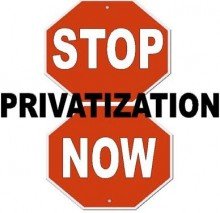The welfare state in Britain was, oddly enough the direct offspring of the warfare state. The eruption, in 1939, of total war, in which civilians were directly incorporated both as producers and targets, required an integration of social support for all-out war.
The absence of young men at the Front required the utilisation of women as factory, munitions and farm workers. Rationing represented an increase in nutritional levels for most workers as minimum nutritional levels for effective work actually exceeded pre-war working class standards. Early British defeats (Dunkirk, Singapore) had shown the pitiful health and poor morale of British “workers in uniform “, so medical treatment of broken fighting units (I.e. soldiers) was introduced. This obviously had civilian spin offs. State control of war industries was required to impose rational order on a chaotic and inefficient system (and to prevent profit-oriented companies supplying the other side!).
The First World War had ended in a series of revolutions across Europe which had thrown the ruling class into such a crisis that some turned to supporting the fascists. This time, they were determined that such revolutions would not happen again. As Quentin Hoare, later Lord Hailsham, said: “If we do not give the people social reform, they will give us social revolution “. Plans for nationalisation of Health, together with near-bankrupt public utilities, passed the House withTory acquiescence and Labour and Liberal support.
Wartime experience had proved the efficiency of nationalised industries compared with private capitalism, which is one of the reasons it took so long for capitalism to rake back its losses. It took at least 20 years to undermine and re-capitalise most public utilities, usually after smashing their house unions to minimise opposition, and 68 years and counting for the 2 most successful: Education and the NHS. Even today, the most craven apologist for Big Pharma (and, yes, I AM thinking of Owen Smith!) feels obliged to say that the NHS is “safe in our hands “. It isn’t, of course.
From the outset, most nationalised industries were saddled with the roots of their own destruction, deliberately so. The private companies they replaced were, by and large,on their last legs, sucked dry of profits by unscrupulous owners. They had failed the challenge of war and the rising new capitalist stares, like USA and Germany. They were crippled with det, rising costs and antiquated technology. The new, nationalised utilities paid off their debts, and were then obliged to pay off the old owners! Thus they came into the world already burdened with debt. State investment, rather than restructuring and re equipping ageing industries, merely served to provide the former owners with a generous annual stipend. This was not, of course made public, so that nationalisation could be shown as inefficient and only a temporary evil.
Two sectors could not be parodied in this way because they scarcely existed for the poor prior to the war: Health and Education. Strangely (!) these were the 2 sectors most beloved of the working class,close to mythological, and where the state has been unable to break the hold of trades unionism. Both these sectors were new and necessarily more efficient than a commodity which had not existed in any real sense before. As an example, my grandfather had all his teeth removed at 21 and replaced by dentures because a lifetime expense of dental care was just not affordable for the working class.
It fell to Blair’s Labour government to provide the layer of debt and inefficiency necessary to alienate support and make privatisation seem appealing now that the risk of social revolution had receded. Combined, of course, with an unceasing wave of attacks upon teaching and health unions.
The weapon chosen was the Private Finance Initiative.
PFI works simply. Rather than a government borrowing money cheaply for major investment projects (which governments can and do), a private company is contracted to build a new school or hospital. It is then leased back to the NHS or Education Authority on a 30 year lease. At the end of the 30 years it still belongs to the company and a lease back must be re-negotiated. Invisible privatisation! Much of the building was shoddy and the leases exorbitant. Instant debt and inefficiency in a single contract. Combine this with an internal market, obliging parts of the system to compete against each other and you are well on the way to the re-privatisation of the entire system. It was designed as a longer term project to return workers to their proper status, I.E. Inferior and sourcing more profit. It was designed to make public ownership look less efficient, more expensive and less worth fighting for.
It isn’t, and it never was. The welfare state was designed to quell social unrest after a frightful war of great working class, and very little ruling class, sacrifice. They did not expect to have to keep it going so long and have always begrudged every single penny spent on levelling the playing field. They think they are better than us and should be grateful for the crumbs from their table. We aren’t!
So bring back the NHS, British Steel, Gas, Electricity, Telecoms, yes, and British Leyland! Worker’s power it ain’t, but it certainly puts a brake on the greed and avarice of our capitalist rulers. Add in a measure of worker’s self-management and we should be really getting up their nose. Bring it on!
Tim Nichols







